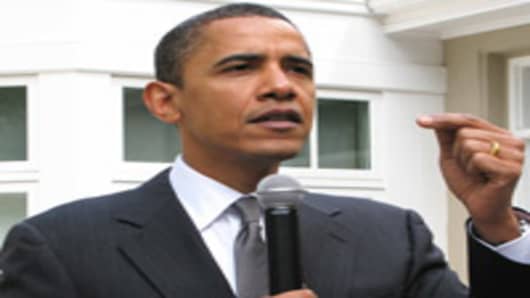Ruy Teixeira, a Democratic analyst of voting trends, wrote the book about the core issue of the party's nomination endgame. The title of the work he co-authored: "America's Forgotten Majority: Why the White Working Class Still Matters."
To hear prevailing analysis of recent primaries, one would conclude Mr. Teixeira is quaking for his party over front-runner Barack Obama's performance against Hillary Clinton among the voters known by such nicknames as "Joe Sixpack" or "Nascar Dad" or "Waitress Mom."
Actually, he is not. Mr. Obama "is clocking in where he needs to be" with white working class voters to win the White House in November, observes Mr. Teixeira.
Say what?
For most of the 2008 primaries, the Clinton and Obama constituencies have remained remarkably stable. While the Illinois senator, has energized young voters, African Americans and affluent liberals, his rival from New York has dominated among women, Hispanics, older voters and blue collar whites.
In the most widely-used measure of white working class support--those without a college degree--she has won by two to one or better in states such as Ohio, Pennsylvania, Indiana and Kentucky. Mr. Obama, bidding to become the first African-American president, has fared better among working class whites in states like Oregon, who tend to be less culturally conservative and more interested in issues such as the environment.
Still, Mrs. Clinton's insistence that she's best positioned to win the "hard working Americans, white Americans" has become the linchpin of her argument that she's more electable.
But Mr. Teixeira, who isn't backing either Democrat, doesn't buy it. He dismisses intra-party contests as "pretty poor evidence" of whether Mr. Obama as Democratic nominee could attract the blue-collar support he needs against Republican candidate John McCain this fall.
And how much blue collar support would he need? Not a majority, notes Mr. Teixeira. Though blue collar Democrats once represented a linchpin of the New Deal coalition, they have shrunk as a proportion of the Information Age economy. They've shrunk even further as a proportion of the Democratic base as conservatives gravitated toward the GOP.
Al Gore lost working class whites by 17 percentage points in 2000, even while winning the national popular vote. John Kerry lost them by 23 points in 2004, while running within three points of President Bush overall. Mr. Teixeira figures Mr. Obama could win the presidency if he comes within 10 to 12 percentage points of Mr. McCain with these voters, as House Democratic candidates did in their 2006 mid-term election rout.
In some recent national polls, that's exactly what Mr. Obama is doing. A recent Washington Post/ABC poll showed Obama trailing by 12 percentage points with this group; Quinnipiac University showed him trailing by seven points. In both surveys, Mr. Obama led overall by seven points.
To be sure, Democrats learned from Mr. Gore's Electoral College defeat that national polls aren't everything. Clinton advisers point to states like Florida, where the former First Lady leads Mr. McCain while Mr. Obama lags behind, as evidence that Mr. Obama's working class weakness could prove decisive.



